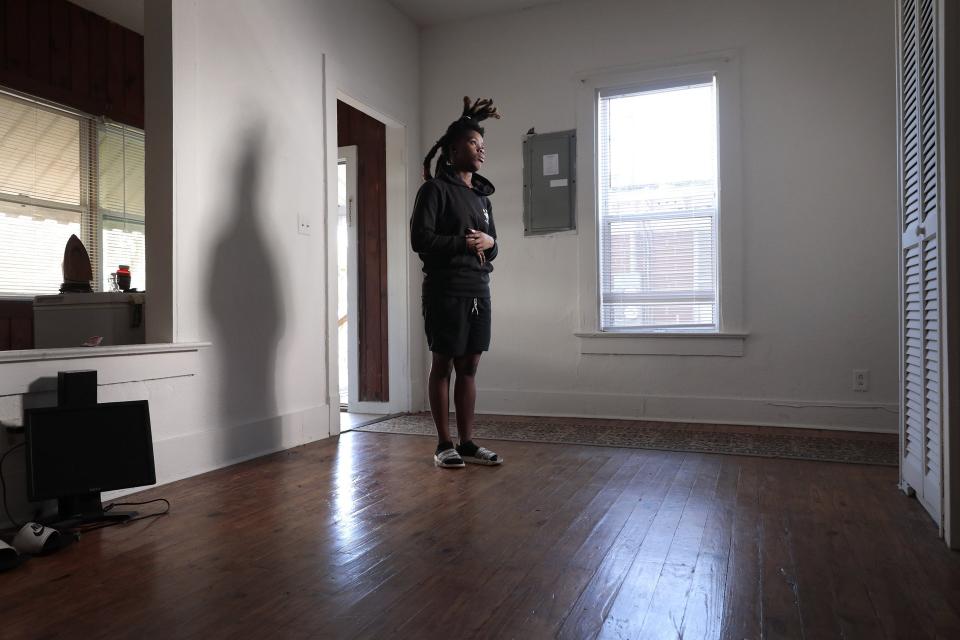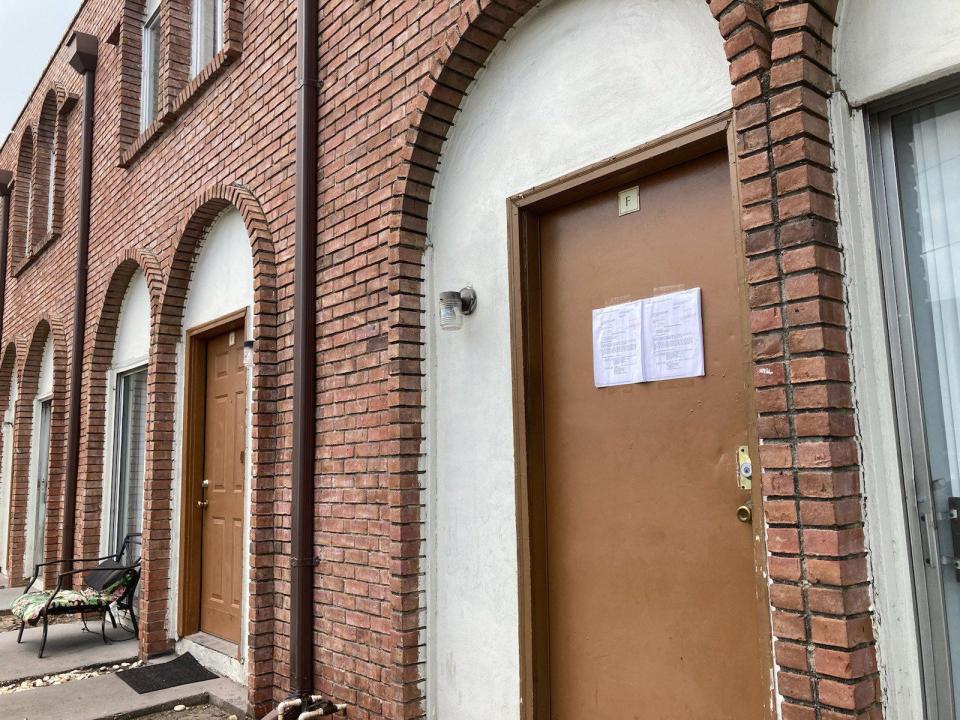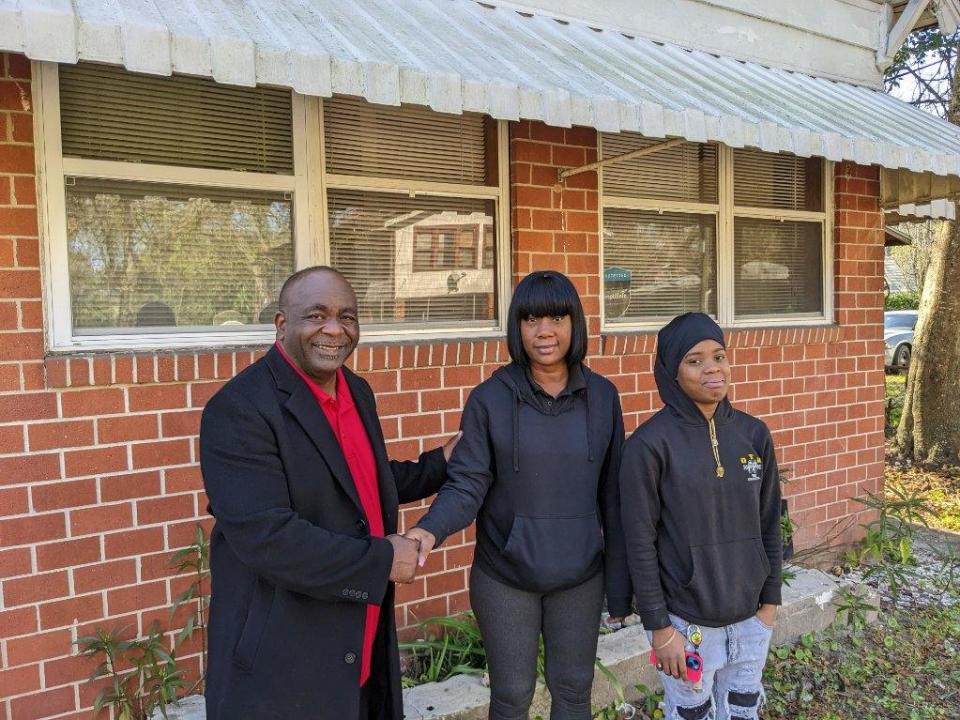Jacksonville eviction numbers on the rise even as rental costs hold steady
Neighborhoods in Jacksonville are changing fast, and not always by choice, in a competitive rental market.
Eviction filings are on the rise around the country, according to a report from Eviction Lab. Jacksonville is above average across the board for the number of people evicted in the last year.
More than 2 million evictions have been filed since the start of the pandemic in the 10 states and 34 cities the Eviction Tracking System follows, which includes Jacksonville.
It took two years for the database to hit the first million, but the second million was added in just a year.
Help is on the way New affordable housing development planned for St. Johns County
Nonprofits filling the gap As affordable housing crisis persists, Northeast Florida agencies step in to help
While some of the uptick can be attributed to the expiration of COVID-era eviction moratoriums, the depletion of rental assistance funds and the increase in rent prices have contributed to the sharp increase in filings.

Jacksonville saw about a 45% increase from 2021 to 2022 compared to pre-COVID averages, which is about 132% above the national average.
Based on Eviction Lab’s map, most eviction filings are coming from west Jacksonville, in the Lackawanna and Westwood neighborhoods, and east Jacksonville, in the Southside Estates area.
Both areas house predominantly people of color, ranging from 40 to 70% Black, depending on the specific ZIP code.
In February alone, evictions were 100% above the national average in Jacksonville. Although that number has come down, the city was still nearly 30% above the average in May, the most recent month of data reported.
Legislative session complicates rental landscape
When it comes to evictions, higher rents and a lack of protection for renters are key, said Christina Kittle, Florida Rising Duval County lead organizer.
“The housing crisis persists in Northeast Florida,” she said. “No one wants to call it that, but it is what it is.”
After what she described as a disappointing legislative season, Florida Rising is trying to bring pieces of the proposed Tenant Bill of Rights to Jacksonville in accordance with more recently established state laws.
“We’re looking at other cities to see what works and meeting with certain council members on parts that we think fall outside the purview of HB 1417,” she said, referencing a bill from the latest legislative session.
HB 1417, signed into law at the end of June, preempts “regulations of residential tenancies [and] landlord-tenant relationships,” superseding certain local regulations.

The bill also revised how much notice is required to terminate month-to-month-paid tenancies, raising it from a required 15 days to 30 days for an eviction notice or tenant’s notice of intent to vacate.
“Legislative session was a huge block for us,” Kittle said. “The governor is passing state laws that are protecting landlords and telling us we don’t matter.”
She said her organization is trying to figure out specific language for local legislation opportunities so it’s not “favoring” one side or the other or directly intervening in the relationship between the renter and the landlord.
Jacksonville — which is about 43% renter-occupied, according to the 2021 U.S. Census — has seen steady population growth for decades.
But, with the increase in eviction numbers and rising rents, people who lived here already with lower incomes — including retirees or those who are unable to work due to disability — continue to see themselves forced out of the city — and maybe even the state.
Year-over-year data shows steadier rental market
May 2023 marked the first year-over-year rent decline nationally for studio-to-two-bedroom properties since trend data began in 2020, according to a Realtor.com report.
In rental markets across the South, year-over-year rent was, on average, lower than what was reported in May 2022 with an average 0.7% decrease in rent.
While this may be good news for those hoping the market cools, it doesn’t do much to dig into the 15-20% year-over-year increases seen in the top 50 metros at this time last year.
Rent in Jacksonville saw a 2.3% year-over-year increase in the May data, which isn't nearly as steep as the 18% year-over-year increase in May 2022. However, the new baseline of higher rent that was established in late 2021 and early 2022 seems to be here to stay.
“Rent on my block now is more than my mom’s mortgage for a five-bedroom house,” Kittle said. “The only way I can understand it is mega-complexes. So if they keep the rent high, then affordable units are still pretty pricey. The going rent stays higher.”
Long-term solutions Jacksonville launches Community Land Trust amid affordable housing crisis
Despite this increase in evictions, average rent costs remain some of the best in the country in the South and in Jacksonville in particular.

Jacksonville ranked in the top 20 best places for renters to live, according to a report from Rent Cafe. The report analyzed data for almost 140 cities by comparing metrics in three categories: cost of living and housing, local economy and quality of life.
The report showed Jacksonville at a cost of living 5.8% under the national average, but with rent increases up to 20% in 2022, this might not be enough to help.
Is it too little too late?
While average rent prices increasing at a slower rate or holding steady could be good for Jacksonville renters, not everyone will be able to weather the changing marketplace long enough for it to make a difference.
Cost of living increases Florida has the highest inflation rate in the country. Here's why
Kittle said one of her friends who had been attending Florida Rising events had to stop because she needed to move out of Jacksonville — and Florida — once it became too unaffordable for her.
“It’s not just a little problem,” Kittle said. “This whole city is changing. We’re losing businesses. It’s just a different Jacksonville.”
Florida's affordability is changing Jacksonville residents face higher housing costs with rent, utilities both rising
Jacksonville Area Legal Aid can be a resource for people facing eviction circumstances that aren’t legal under state or county laws, such as not allowing for enough notice.
Other resources for rental and housing assistance also are available through state and county programs.
This article originally appeared on Florida Times-Union: Continuous increases in rent cause eviction filings to soar

